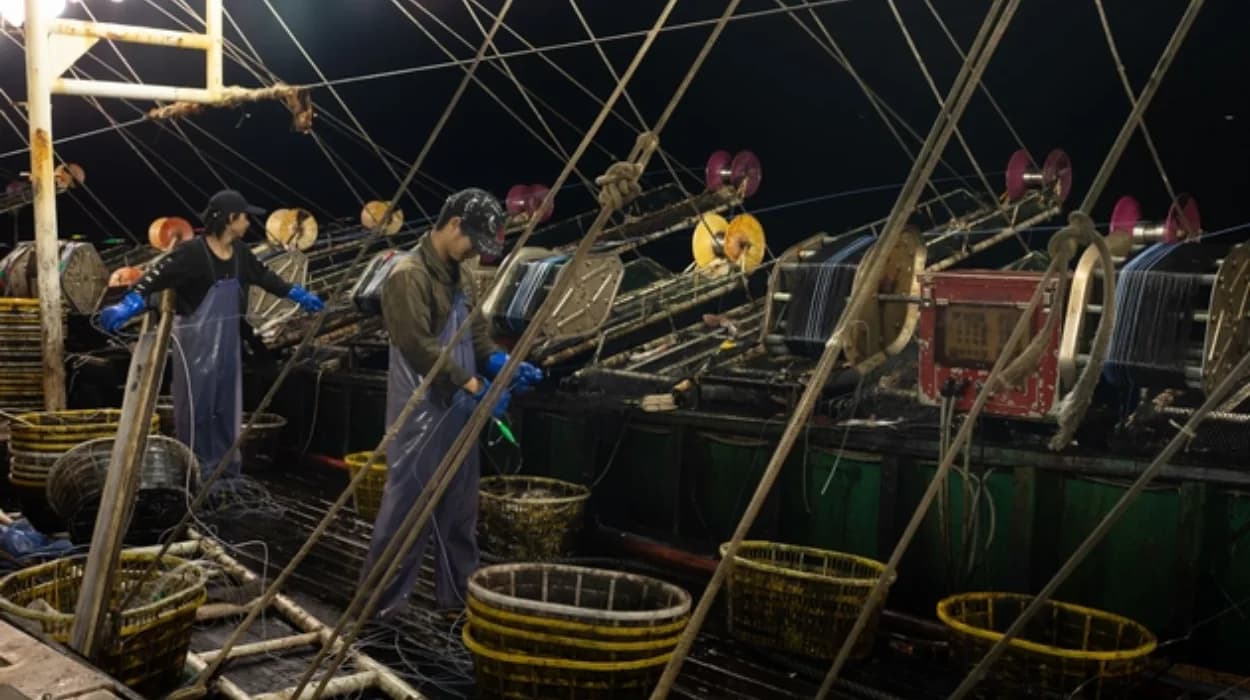Through a last-minute Senate correction, lawgivers were suitable to add a many vittles to the appropriations bill, including the creation of a new seafood liaison position within the U.S. Department of Agriculture (USDA), which is a top precedent for the U.S. seafood assiduity. The legislation basically maintains backing at financial time 2025 situations.
“The appropriations bills we passed also included significant provisions that will greatly benefit Alaska, bringing hundreds of millions of dollars to our state for military construction, funding our veterans’ care and benefits, and establishing a seafood industry liaison in the Department of Agriculture to advocate for Alaska’s fishermen and coastal communities,”
U.S. Senator Dan Sullivan (R-Republican) said in a release.
The domestic fish business has been advocating for a greater presence within USDA, a government agency that supports the country's agricultural sector.
Lawmakers have sought to make it clear that USDA loans and fiscal services are available to seafood- related businesses, while the seafood association wants USDA programs to help marketable fishing and monoculture enterprises.
In a letter to Congress in 2023, the National Fisheries Institute( NFI), Seafood Harvesters of America (SHA), Pacific Seafood Processors Association( PSPA), At- ocean Processors Association( APA), Pacific Seafoods, and Trident Seafoods proposed, among other effects, the creation of an Office of Seafood Policy and Program Integration within the USDA Office of the Chief Economist.
“Such an office would also serve a critical role in coordinating with other agencies that have a role in the seafood supply chain, to ensure that all agencies are collectively working toward common seafood support objectives in domestic and global markets,”
the letter stated.
In the ensuing years, lawmakers have tried to establish such a position; in 2024, Republicans issued a Farm Bill draft that would have created an Office of the Secretary of Agriculture liaison for the seafood industry. The department would have had an aquaculture office under the Sustaining Healthy Ecosystems, Livelihoods, and Local Seafood (SHELLS) Act.
The new office will receive USD 500,000 (EUR 429,278) under the measure, which is less than the USD 625,000 (EUR 535,132) that the Senate had suggested earlier this year. A Senate report that was included with the initial proposal stated that the liaison would support “domestically harvested and processed wild and farmed seafood” and coordinate efforts between USDA, the Department of Commerce, and the U.S. Trade Representative. However, lawmakers have not offered any additional details regarding the position.
A restriction on Chinese seafood in school lunches in the United States is another clause included in a last-minute Senate amendment.
“None of the funds made available by this Act may be used to procure raw or processed poultry products or seafood imported into the United States from the People's Republic of China for use in the school lunch program,”
the legislation reads.
Additionally, the amendment gave USD 2 million (EUR 1.7 million) in grant cash for processors and instructed the U.S. Food and Drug Administration to work with business to choose a suitable market name for over a dozen rockfish.
How will USDA implement and enforce the seafood liaison role?
Coordinate seafood-related conditioning across USDA agencies and with other civil realities like the Department of Commerce (including NOAA Fisheries) and the U.S. Trade Representative.
Support domestically gathered and reused seafood, helping to strengthen seafood diligence and force chains. grease communication between government, assiduity stakeholders, and other applicable parties. Advise on seafood policy development, nonsupervisory issues, and backing precedences linked to seafood and monoculture.
The part isn't primarily an enforcement position; enforcement of seafood safety and quality norms remains substantially under being agencies, particularly the FDA, which regulates seafood safety through systems like the Hazard Analysis Critical Control Point (HACCP) program. USDA’s liaison will round these efforts by fastening on policy collaboration and assiduity support rather than direct nonsupervisory enforcement.

